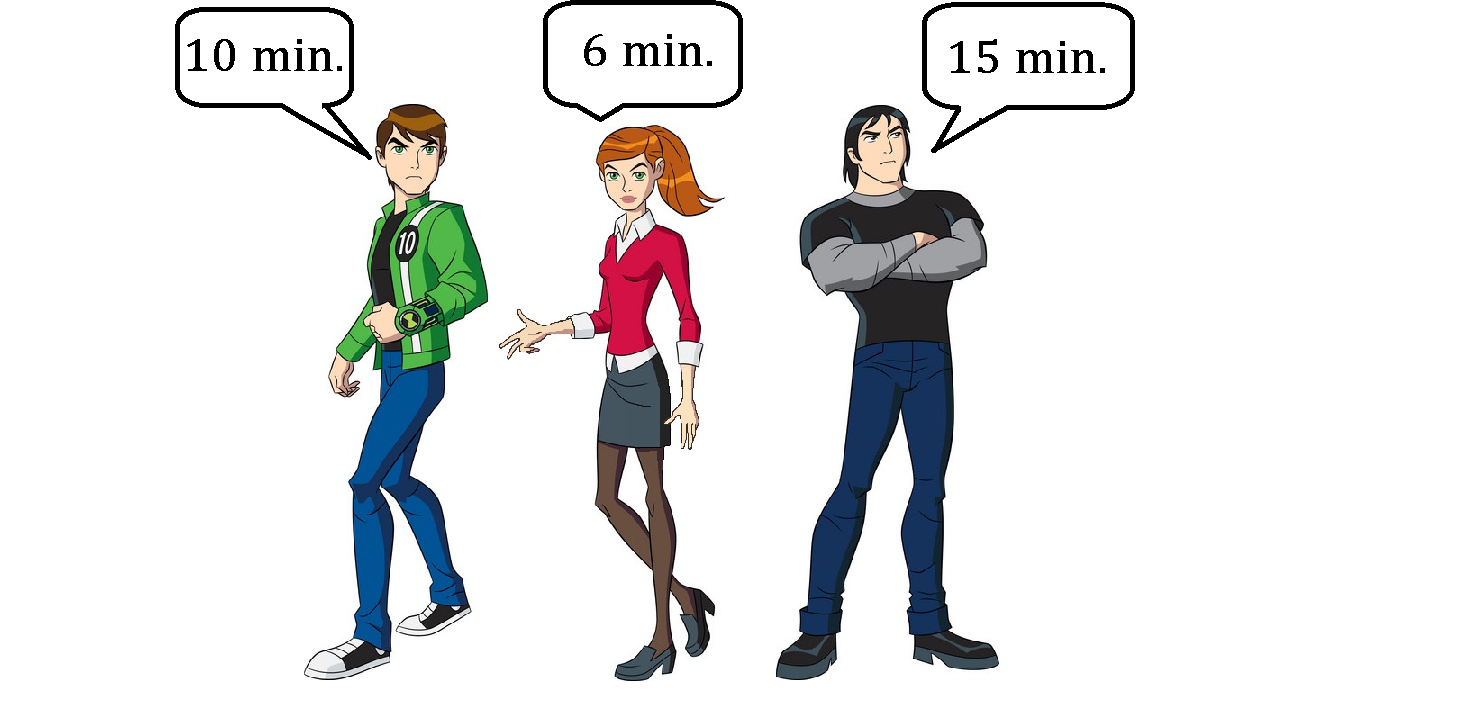Averaging Out Their Differences

Ben, the ultimate hero, spends 10 minutes to solve a math problem.
The pretty and smarter Gwen only needs 6 minutes to come up with an answer.
Kevin, on the other hand, doesn't attend any school, so he takes 15 minutes for the same task.
What is the average time per person required for this team to solve a math problem?
The answer is 9.
This section requires Javascript.
You are seeing this because something didn't load right. We suggest you, (a) try
refreshing the page, (b) enabling javascript if it is disabled on your browser and,
finally, (c)
loading the
non-javascript version of this page
. We're sorry about the hassle.
Relevant wiki: Harmonic Mean
To solve this problem, we need to find the harmonic mean within this team:
H . M . = ∑ x 1 N = 6 1 + 1 0 1 + 1 5 1 3 = 3 0 2 + 3 + 5 3 = 9
Practically speaking, suppose we let the three teenagers 3 0 minutes to do their homework. Ben would solve 3 problems; Gwen 5 problems; and Kevin only 2 problems. Overall, the three of them could solve 1 0 problems in 3 0 minutes; in other words, proportionally they could solve 1 problem in 3 minutes.
Clearly, since 3 1 = 9 1 + 9 1 + 9 1 , for the same capacity, each person would need 9 minutes to solve a math problem, as calculated above.